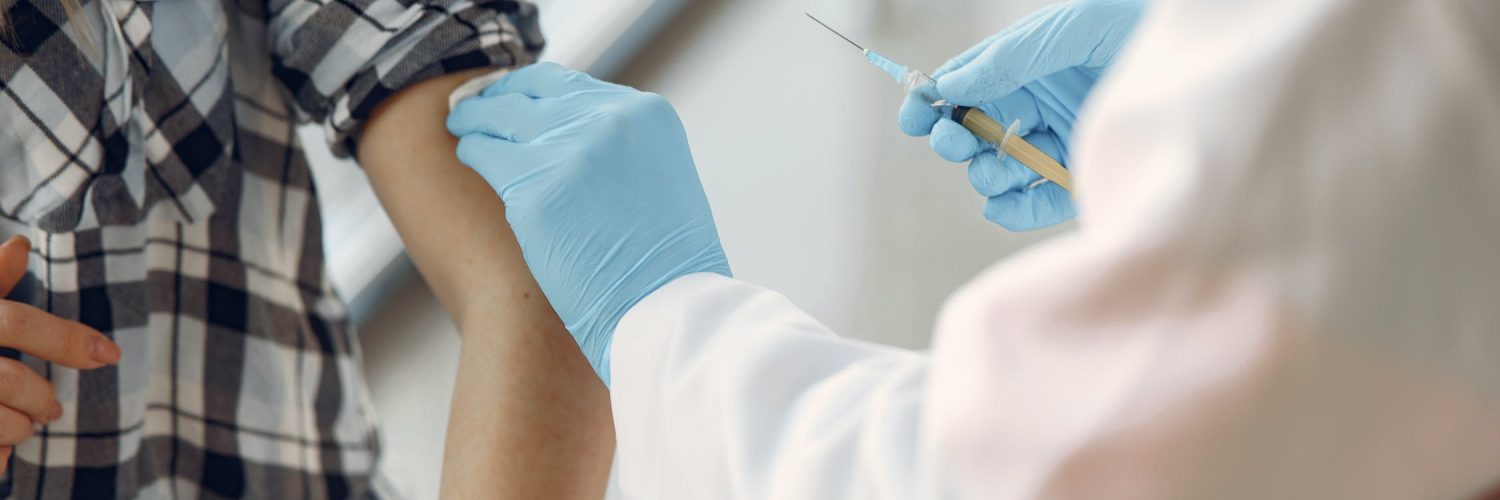As Covid-19 continues to take its toll on Arizonans’ health and impact hospital capacity, many citizens have no plans to get immunized even though an effective vaccine is available, recent polls indicate.
That’s alarming to the medical community and business groups that came together this week to discuss the economic impacts of getting vaccinated — or not.
Vaccines are one of the nation’s most important “economic development” tools to prevent the societal and financial costs that come with disease outbreaks, said Arizona economist Jim Rounds, who spoke at the event entitled, How Vaccines Impact Arizona’s Economy.
“That’s the most cost effective, highest return on investment, economic development project we have ever seen in this country and it has to do with distribution of vaccines,” Rounds said.
AZBio (Arizona Bioindustry Association) and a coalition of health and community organizations hosted the discussion to highlight the importance of vaccines to the state’s health and welfare.
Fifteen medical and business organizations sponsored the event including the Arizona Chapter of the American Academy of Pediatrics, Arizona Academy of Family Physicians, Arizona Nurses Association, Arizona Medical Association, Arizona Chamber of Commerce & Industry, Children’s Action Alliance, Grand Canyon University, and Greater Phoenix Leadership.
Duration of economic recovery depends on vaccination rates
To put the pandemic’s economic impact in perspective, Rounds compared the pandemic recession with the Great Recession of 2008-09.
About 7 million jobs were lost in the Great Recession. More than three times that amount, 22 million, were lost during the height of the Covid recession last year.
Arizona is seeing quicker recovery than other states when it comes to jobs, he said. But certain groups, particularly low-income individuals, are disproportionately affected by the recession, he said.
“A recession ends when the vaccine is widely distributed,” Rounds said.
To achieve full economic recovery this year, the state will need to vaccinate 20,000 to 30,000 people daily, he said. Currently, only about 8,000 a day are being vaccinated.
Human and financial costs of not getting vaccinated
Of concern is a growing anti-vaccination movement that is largely based on misinformation, Rounds said.
Arizona already has one of the lowest childhood vaccination rates, which is “unacceptable,” he said.
“We need to rely on science and research, not dogma,” he said.
To illustrate the human and financial costs of not getting vaccinated, Rounds referred to research by the Centers for Disease Control that estimates that among children born in the last 20 years, vaccinations prevented more than 21 million hospitalizations and 732,000 deaths.
Another study by the American Academy of Pediatrics on children born in 2009 revealed that compliance with the recommended vaccine schedule would represent $68.8 billion in savings to society, Rounds said.
“The Covid-19 pandemic is a reminder that we have to be diligent with getting information out there and we have to continue to advance science and research to attack these problems.”
Other speakers at the event were:
- Chandler physician Dr. Andrew Carroll talked about his experience treating hospitalized Covid patients and the importance of vaccines in eradicating disease.
- Phyllis Arthur, vice president of infectious diseases and diagnostics policy for the Biotechnology Innovation Organization in Washington, D.C., detailed the race by companies like Pfizer and Moderna to roll out hundreds of millions more doses in the next few months.
To view the entire presentation, go to: How Vaccines Impact Arizona’s Economy
Fifteen health and business organizations sponsored the event including:
















Add comment